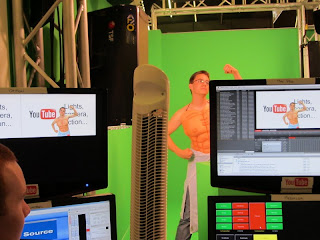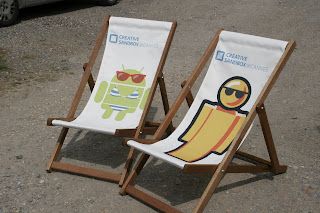Be sure to check out the video below to get a real feel for the event!
Event Highlights
Both the Google beach and the YouTube zones were huge hits. Check out the video that captures the essence of it all. Other highlights:
Both the Google beach and the YouTube zones were huge hits. Check out the video that captures the essence of it all. Other highlights:
- 3,000+ visitors joined us at the Creative Sandbox to enjoy the festival’s only open, free beach space. They cherished free wifi, interacted with 11 demos, gulped back more than 7,000 smoothies, re-energised themselves at our daily yoga classes and produced 700+ Androidify t-shirts
- 3,000+ attended Eric Schmidt and Andy Berndt’s main stage session
- 1,800+ attended the YouTube hosted ‘Good Work’ plenary with Publicis CEO, Craig Davis
- 2,000+ engaged with our two YouTube zones in the festival hall to relax with smoothies or star in their own YT ad remake.
- 5,000+ unique visitors engaged with our Cannes mobile site and heat map
- 14 official Cannes Lions Awards won, including Award for Media Man of the Year for Eric, Wilderness Downtown,
- Chrome, Voice Search, Life in a Day, Art Project and Demo Slam campaigns








